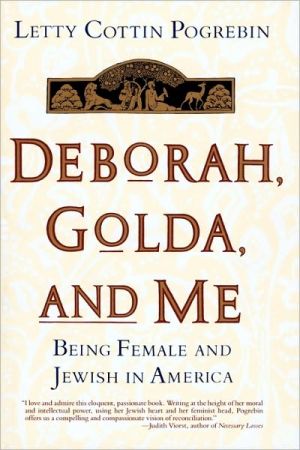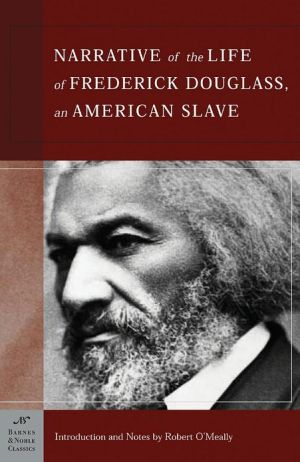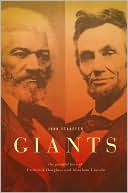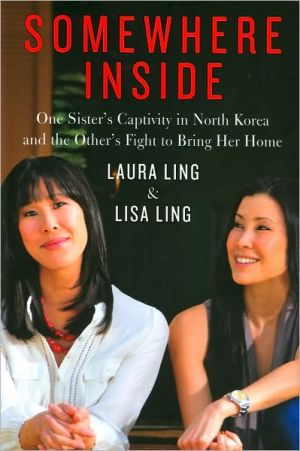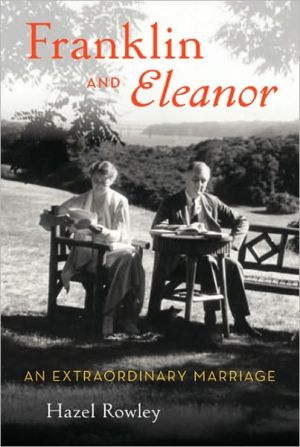Deborah, Golda, and Me: Being Female and Jewish in America
A leading feminist activist, author, and nationally known lecturer writes of her struggle to integrate a feminist head with a Jewish heart.\ \ \ As an adolescent, Pogrebin experienced agonizing rejection from Judaism because she was female, and at 15 she disassociated herself from organized Judaism. This book is about her journey 20 years later back to her roots, her decision to reconsider her withdrawal, and her struggle to reconcile feminism and her religion.\
Search in google:
A leading feminist activist, author, and nationally known lecturer writes of her struggle to integrate a feminist head with a Jewsih heart. Publishers Weekly A founding editor of Ms magazine here casts a wide net, chronicling her family history and her feminist and spiritual awakenings and tackling issues that concern Jews and feminists. Her mother, who died when Pogrebin, now in her 50s, was 15 and is somewhat sentimentalized in this telling, served bacon in her ``kosher'' home and kept secrets regarding a previous marriage, abortions and money. Pogrebin's father denied a daughter from a earlier marriage, neglected his family to be a big shot in Jewish organizations and, following the letter of the law, barred the author from the minyan saying kaddish for her mother. Linking patriarchal Judaism with her emotionally withholding father, Pogrebin in adulthood was an unaffiliated Jew until she served as cantor of a Fire Island prayer group in 1970. Spiritual seekers will find a wealth of alternative Jewish rituals here, of varying worth. Pogrebin's assessments of anti-Semitism in the women's movement and of clashes between blacks and Jews and between feminists and establishment Jews are trenchant. Her film critiques are facile, however, and a commendable account of Middle East peace initiatives is diluted with details of organizations and meetings. (Sept.)
\ Publishers Weekly - Publisher's Weekly\ A founding editor of Ms magazine here casts a wide net, chronicling her family history and her feminist and spiritual awakenings and tackling issues that concern Jews and feminists. Her mother, who died when Pogrebin, now in her 50s, was 15 and is somewhat sentimentalized in this telling, served bacon in her ``kosher'' home and kept secrets regarding a previous marriage, abortions and money. Pogrebin's father denied a daughter from a earlier marriage, neglected his family to be a big shot in Jewish organizations and, following the letter of the law, barred the author from the minyan saying kaddish for her mother. Linking patriarchal Judaism with her emotionally withholding father, Pogrebin in adulthood was an unaffiliated Jew until she served as cantor of a Fire Island prayer group in 1970. Spiritual seekers will find a wealth of alternative Jewish rituals here, of varying worth. Pogrebin's assessments of anti-Semitism in the women's movement and of clashes between blacks and Jews and between feminists and establishment Jews are trenchant. Her film critiques are facile, however, and a commendable account of Middle East peace initiatives is diluted with details of organizations and meetings. (Sept.)\ \ \ \ \ Library JournalPogrebin, a founding editor of Ms. magazine whose books on feminist thinking include How To Make It in a Man's World ( LJ 4/1/70), here reconciles her Jewish background, which she rejected for almost 20 years, with her feminist ideology. Scenes from her faith-observant home are described poignantly. The break from observance came at the time Pogrebin's mother died and she was not allowed by the patriarchal structure to recite the kaddish , a prayer for the dead. She learns in time to embrace both feminism and a reexamined Judaism, describing how she celebrates Jewish holidays, and which rituals have special meaning to her as a woman. Chapters on the secular sphere include a feminist perspective on Jewish and black women, the treatment of women in Israel, Palestinians, and feminist attitudes toward South Africa. This well-written, vigorous, and challenging look at Jewish traditions and values from the worldview of a leading feminist thinker is recommended for most libraries.-- Molly Abramowitz, Silver Springs, Md.\ \
